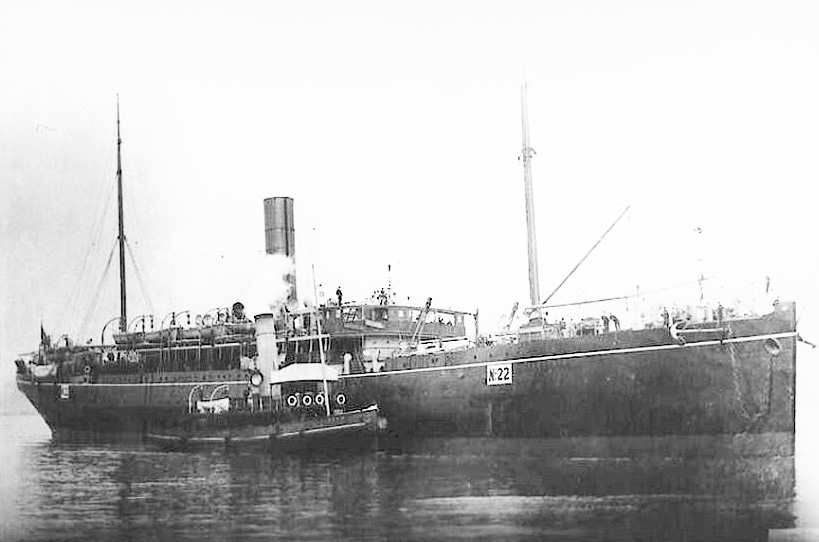Difference between revisions of "SS Sardinia"
From Our Contribution
| Line 1: | Line 1: | ||
| − | {{Infobox | + | {{Infobox ship |
| − | | | + | | image = [[File:SS_Sardinia.jpg]] |
| − | |||
| − | |||
| − | |||
| − | |||
| − | |||
| − | |||
| caption = | | caption = | ||
| − | | | + | | image2 = [[File:.jpg]] |
| caption2 = | | caption2 = | ||
| + | | shipname = SS Sardinia | ||
| + | | shipowner = | ||
| + | | shipbuilder = Barclay, Curle & Co, Glasgow | ||
| + | | shipyardnumber = | ||
| + | | shiplaunched = 1902 | ||
| + | | shipcompleted = | ||
| + | | shipinservice = | ||
| + | | shipoutofservice = | ||
| + | | shipinservice2 = | ||
| + | | shipoutofservice2 = | ||
| + | | shipreclassified = | ||
| + | | shipID = | ||
| + | | shipfate = | ||
| + | | shiptype = passenger / cargo | ||
| + | | shiptonnage = 6,574 tons | ||
| + | | shiplength = | ||
| + | | shipbeam = | ||
| + | | shipdepth = | ||
| + | | shippropulsion = twin screw | ||
| + | | shipspeed = 14 knots (25.93 km/h) | ||
| + | | shipcapacity = | ||
| + | }} | ||
| − | |||
| − | |||
| − | |||
| − | |||
| − | |||
| − | |||
| − | |||
| − | |||
| − | |||
| − | |||
| − | |||
| − | |||
| − | |||
| − | |||
| − | |||
| − | |||
| − | |||
| − | |||
| − | |||
| − | |||
| − | |||
| − | |||
| − | |||
| − | |||
Revision as of 17:39, 15 December 2021
 | |
| File:.jpg | |
| History | |
|---|---|
| Name | SS Sardinia |
| Builder | Barclay, Curle & Co, Glasgow |
| Launched | 1902 |
| General characteristics | |
| Type | passenger / cargo |
| Tonnage | 6,574 tons |
| Propulsion | twin screw |
| Speed | 14 knots (25.93 km/h) |
Contents
[hide]Remarks
Built for the Peninsular & Oriental Steam Navigation Company as a passenger / cargo vessel. Sardinia spent her entire life in service with P&O, and was eventually sold for scrap. She was taken to Osaka, Japan for demolition on 20 July 1925.
During WW1 she was torpedoed in the starboard bow by a German submarine, whilst in convoy in the Mediterranean. Her passengers and most of the crew were transferred to a warship, but senior officers and some crew remained on board. To prevent one of her forward bulkheads from collapsing, she sailed backwards for over sixty miles (100 kilometers) at a speed of 3.5 knots, eventually arriving in Oran, where temporary repairs were made. Permanent repairs were then made in Gibraltar.